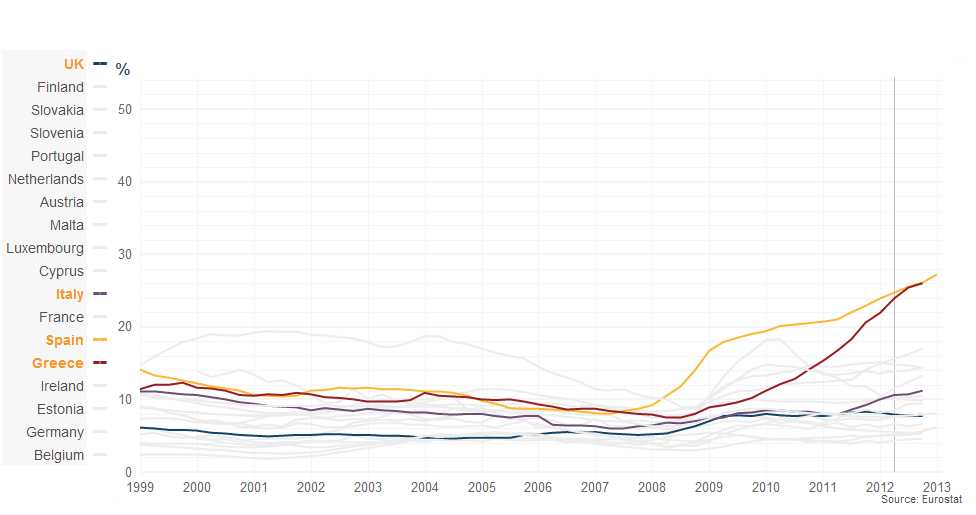EUROZONE UNEMPLOYMENT: FULL DATA
Contrast their fates with Germany, where unemployment has fallen this year to its lowest level since the country was unified more than two decades ago.
Many countries have seen unemployment rise as austerity measures following the financial crisis have led to cuts in government spending, which has involved public sector job losses.
What's more, labour costs rose unsustainably in the peripheral European countries during the last decade, leaving them too expensive relative to the much more productive German workers with whom they share a currency.
~RS~q~RS~~RS~z~RS~12~RS~)


 HMRC 'failing to check tax reliefs'
HMRC 'failing to check tax reliefs'